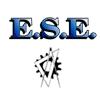Explore all the information on
Feed processing and manufacturing
Welcome to the page about Feed processing and manufacturing of Engormix; a source of knowledge on Feed processing and manufacturing.
The International Production & Processing Expo (IPPE) offers attendees access to the latest in protein and feed technology through exhibits and educational programming. TECHTalks are free, 20-minute technical presentations, offered each day at IPPE. For the 2026 IPPE, 90 presentations will be given in the TECHTalks theaters in the A-Hall at Booth A244, in the B-Hall at Booth B45011 and the C-Hall at Booth C14128.
The TECHTalks presentations will address many topics, including...
Comments : 0
Recommendations: 0
The rendering industry plays a critical role in supporting animal agriculture through sustainability, innovation and responsible resource use, yet its value is often underrecognized in broader food and feed discussions. The International Rendering Symposium,...
Comments : 0
Recommendations: 0
1. Introduction Hunger is a pervasive problem in emerging economies, undermining people’s health, productivity, and often their very survival [1]. According to the report in “The State of Food Insecurity in the World 2024” by the United Nations Food and Agriculture Organization, an estimated 713 to 757 million people of the 8.3 billion people in the world, or 8.9 to 9.4%, were suffering from chronic undernourishment as of 2023. The majority of these...
Comments : 0
Recommendations: 0
Author details: 1 Department of Animal Sciences and Industry, College of Agriculture, Kansas State University, Manhattan, KS, USA 66506-0201; 2 Gordon Denny, LLC, Thornton, CO, USA 80602; 3 Agri Networks Management, Old Saybrook, CT, USA 06475; 4 Bunge North America, Chesterfield, MO, USA 63017; 5 Agricultural Research Service, U.S. Department of Agriculture and Divisions of Plant Sciences and Animal Sciences, University of Missouri, Columbia, MO, USA 65211; 6 Department...
Comments : 1
Recommendations: 0
.jpg&w=3840&q=75)

Blending technology and sustainable solutions
Suggested link
Introduction Barley is one of the main cereals produced in Norway and is used in broiler feed in low amounts due to high content of non-starch polysaccharides (NSP) (Bedford 1995; Knudsen 2014; Svihus and Gullord 2002) and lower energy value compared to maize, wheat or sorghum (Choct and Annison 1990; Khalil et al. 2020). The NSP fractions comprising soluble βglucans and arabinoxylans have gel-forming characteristics and are known to increase intestinal viscosity (Choct 2006),...
Comments : 0
Recommendations: 0
Mr. Josef Barbi, President at E.S.E. & INTEC, and Nakul Vakil (Cremach Private Limited), highlight the successful design, installation, and operation of a high-capacity shrimp feed plant in India. The partnership now expands toward engineering and manufacturing specialized process equipment for animal feed, biomass pelleting, and waste management across global markets. ...
Comments : 0
Recommendations: 0
When a Laboratory Result Changes Everything The laboratory report arrives late in the morning. The batch complies with all nutritional specifications… except one. A trace of a coccidiostat is detected in a premix intended for a non-target species. The level is very low, only a few milligrams per tonne. And yet, doubt immediately arises: where did it come from? The previous product? Residual material in the circuit? A fraction of dust trapped in a filter? Nothing...
Comments : 0
Recommendations: 1
Growth of the modern broiler is very adaptable to a vast range of diet nutrient densities, and so formulation matrices are greatly impacted by prevailing economic situations. The broiler still eats quite precisely to its energy needs and alters its feed intake in response to variable diet energy level. For example, 25-35d broilers can be fed diets a low as 2850 kcal/kg or as high as 3500 kcal/kg as seen in some locations, and growth rate is little impacted if the bird can adjust its feed...
Comments : 10
Recommendations: 5
.jpg&w=3840&q=75)

Blending technology and sustainable solutions
Suggested link
John Boney (Penn State University) discusses performance, body weight, and feed conversion ratio when feeding mash compared to pellets in this Engormix interview during IPPE 2025 in Atlanta, USA....
Comments : 3
Recommendations: 1
INTRODUCTION In recent years, the emergence of new products for human and animal consumption has intensified, which could be produced exclusively through the extrusion process. In particular, those produced with high levels of protein, derived from pulses, known as plant based. Several products of this type now available in supermarkets imitate pieces of meat, whether analogous to steaks or fillets, whether chicken, beef, fish, or even imitating seafood. The upper layer of fish...
Comments : 1
Recommendations: 0
Dear colleagues and professionals in the feed manufacturing industry, The image below shows a broken pellet die. I already know the root cause, but I’m sharing this to spark a technical discussion and learn from your insights. - What do you think could lead to such damage? - Have you faced similar issues? What solutions worked for you? I’d love to hear your thoughts and experiences. Let’s turn this into a learning opportunity for...
Comments : 1
Recommendations: 0
Charles Starkey (VP of Scientific and Regulatory Affairs, NARA) discusses his REAM 2025 presentation on biocircularity and sustainability in this Engormix interview. ...
Comments : 1
Recommendations: 0
.jpg&w=3840&q=75)

Blending technology and sustainable solutions
Suggested link
Extreme rains in northwest Iowa have caused instances of stored grain being covered with floodwater. According to current Food and Drug Administration policy, grain inundated by uncontrolled river or stream water is considered adulterated and must be destroyed. The current situation is one of river water flooding rather than of rain-driven pooled water in low ground, for which there are salvage options. River-based floodwaters can bring in many hazards and rapid spoilage. Flooding...
Comments : 0
Recommendations: 0
In the world of animal feed manufacturing, some parameters shout: protein levels, energy values, additive profiles. Others whisper, quietly shaping performance from behind the scenes. Particle size is one of those silent drivers. And yet, for monogastric species like pigs and poultry, it can be the difference between optimal feed conversion and costly inefficiencies. I’ve spent over three decades in feed process technology, and if there’s one...
Comments : 0
Recommendations: 3
1. Introduction Influenza A virus (IAV) is an enveloped RNA virus, a member of the Orthomyxoviri dae family, and is known to infect humans, mammals, and birds [1]. The virus is subtyped based on the antigenic cross-reactivity and sequence identity of two surface glycoproteins, namely, hemagglutinin (HA) and neuraminidase (NA) [2]. Excluding the recently identified H17N10 and H18N11 in bats, 16 HA and 9NAIAV subtypes have been identified in mammals and birds to date...
Comments : 1
Recommendations: 1
ARLINGTON, Va. – The American Feed Industry Association (AFIA) is pleased to announce that the International Feed Industry Federation (IFIF) unanimously elected Constance Cullman, President & CEO of the AFIA, as chair for 2026–27 in Rome, Italy during the annual IFIF meeting last week. She will succeed...
Comments : 0
Recommendations: 2
.jpg&w=3840&q=75)

Blending technology and sustainable solutions
Suggested link
Lin Yuzhou, General Manager Assistant, Sifang Machinery, comments on the use of low temperatures in the rendering process, as well as its cost and environmental benefits, during this Engormix interview at REAM 2025 in Guadalajara, Mexico. ...
Comments : 0
Recommendations: 0
Charles Starkey (VP of Scientific and Regulatory Affairs, NARA) comments on NARA's initiatives, as well as collaboration between organizations across the rendering industry, during this Engormix interview at REAM 2025 in Guadalajara, Mexico. ...
Comments : 0
Recommendations: 0
Dana Johnson Downing (VP of International Programs, NARA) comments on their educational project, Rendering University, and its upcoming official launch, during this Engormix interview at REAM 2025 in Guadalajara, Mexico. ...
Comments : 0
Recommendations: 0
Ethan Carter (Advisor, Darling Ingredients Inc.) explains how the rendering industry offers sustainable solutions and benefits during this Engormix interview at REAM 2025 in Guadalajara, Mexico. ...
Comments : 0
Recommendations: 0





.jpg&w=3840&q=75)

















